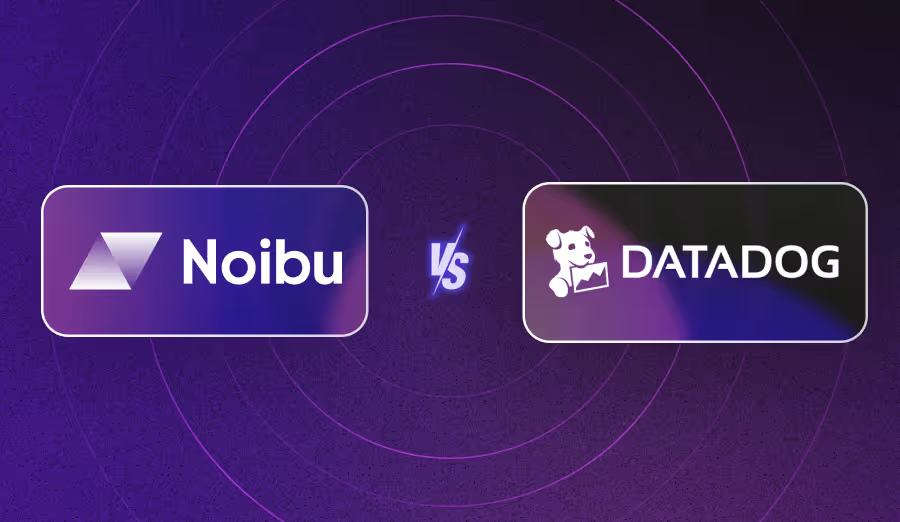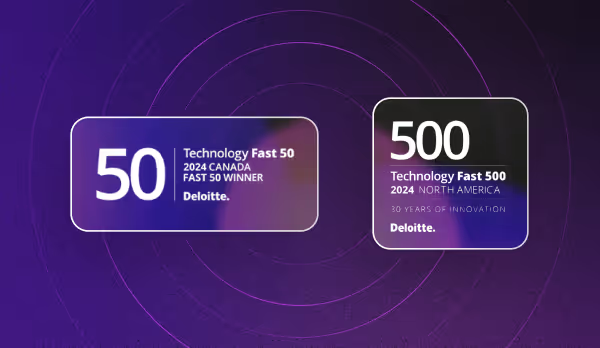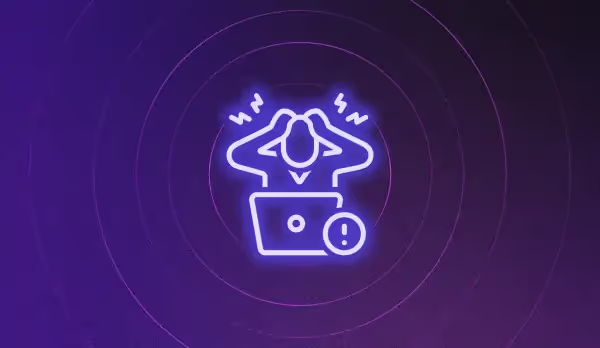Noibu vs Datadog: Why ecommerce teams need insight, not infrastructure

Monitoring built for merchants
Modern ecommerce runs on speed, precision, and customer trust.
But traditional monitoring tools were never built with merchants in mind.
Datadog is a powerful platform for infrastructure and backend observability—tracking CPU usage, latency, and server uptime across large systems. It’s invaluable for DevOps teams.
The problem? Ecommerce success isn’t just about uptime. It’s about conversion uptime—making sure every shopper can browse, add to cart, and check out without friction.
That’s where Noibu comes in.
Noibu is the conversion opportunity intelligence platform built specifically for ecommerce. It captures every customer session, detects every error or slowdown, and prioritizes what truly matters: revenue impact.
The observability gap
Datadog monitors systems.
Noibu monitors shopping experiences.
When ecommerce leaders ask, “We already have Datadog—why do we need Noibu?”, the answer is simple: Datadog sees your systems; Noibu sees your shoppers.
Complete ecommerce monitoring for merchants
Noibu captures every session, front-end error, and performance slowdown, tying them directly to customer experience and lost revenue.
“Before Noibu, we were shining a flashlight, hoping to spot issues in the dark. Noibu turned the lights on.”
— Yoav Shargil, CDO, David’s Bridal
Where Datadog alerts you to a CPU spike, Noibu alerts you to the checkout button that’s failing for Safari users.
Datadog misses:
- Built for backend infrastructure, not real user experience.
- Limited visibility into customer friction or cart issues.
- Alerts trigger on system metrics, not conversion-impacting events.
Noibu delivers:
- Front-end and UX monitoring tied to actual revenue impact.
- Funnel-aware insights across product, cart, and checkout.
- Automatic issue detection and prioritization based on business impact.
Actionable insights dev and product teams can use
Datadog surfaces vast amounts of logs and traces—great for system reliability, but overwhelming for ecommerce workflows. Teams must manually correlate logs with customer reports, leaving business and product teams in the dark.
Noibu translates technical data into clear next steps.
AI-generated context, stack traces, and HTTP payloads make each issue reproducible and diagnosable—linked directly to session replays and Jira tickets.
“The biggest win for us has been saving critical development hours. We were spending a lot of time replicating issues and we’ve cut that down dramatically with Noibu.”
— Carrie McMahon, Ecommerce Product Manager, Alice + Olivia
Datadog misses:
- Raw logs without ecommerce context or prioritization.
- Requires deep technical expertise to interpret.
- Non-technical teams depend on developers to make sense of backend data.
Noibu delivers:
- Clear, human-readable error explanations.
- Reproducible steps with session replays.
- Shared visibility across product, UX, and engineering teams.
Purpose-built for ecommerce growth
Noibu was designed for ecommerce funnels—from product detail page to checkout completion.
It identifies and quantifies issues that affect conversions, uncovering hidden friction and potential lost revenue.
Datadog misses:
- Infrastructure-centric view with no checkout or cart visibility.
- No revenue correlation or prioritization by customer impact.
- Requires heavy customization to adapt for ecommerce use cases.
“We’re not just fixing bugs—we’re optimizing the whole experience. Noibu helps us think strategically about ecommerce performance.”
— Eric Kelsey, Sr. Technical Product Manager, Champion
Noibu delivers:
- Funnel-based workflows that map technical issues to conversion stages.
- Revenue impact scoring to prioritize fixes by business value.
- Ecommerce-specific integrations and benchmarks.
Feature-by-feature comparison
Here’s how the two platforms differ where it counts.
Switching from Datadog: what teams ask
- “We already have Datadog for monitoring.”
- “Our developers rely on Datadog logs.”
- “Datadog captures errors across the full stack — isn’t that enough?”
These are fair questions. But they reflect a DevOps-first mindset—not a conversion-first one.
Backend monitoring can tell you that an error happened.
Only Noibu can tell you who it affected, where it occurred in the funnel, and how much it cost in revenue.
That’s why ecommerce leaders from Guess, Ribble Cycles, Ariat, and Mejuri have all made the switch.
“It’s really hard to prove ROI with Datadog. You get a lot of data, but not much direction. With Noibu, every fix correlates directly to recovered revenue.”
— Matthew Lawson, CDO, Ribble Cycles
The conversion observability loop
Noibu’s approach goes beyond traditional monitoring. It’s a closed-loop process built for ecommerce:
- Uncover: Automatically capture frontend errors, UX friction, and performance slowdowns.
- Quantify: Calculate revenue impact to identify which issues truly matter.
- Prioritize: Focus on conversion blockers, not just code anomalies.
- Resolve: Use full technical context and session replays for rapid fixes.
- Verify: Confirm resolution and measure recovered revenue.
Datadog stops at step one. Noibu carries you all the way through to measurable impact.
Why ecommerce leaders switch
- Full-funnel visibility: From PDP to checkout, across browsers and devices.
- Revenue-based prioritization: Know which issues cost you the most.
- Cross-team alignment: Shared visibility for dev, product, and marketing.
- Actionable insight: Fix faster with AI-generated context and session replay.
- Ecommerce expertise: Industry-specific guidance and benchmarks.
What Datadog can’t tell you
Datadog keeps your systems running.
Noibu keeps your business performing.
Monitoring tools show you what broke.
Noibu shows you what it cost—and how to fix it.
When the next conversion drop happens, which platform will tell you why?



